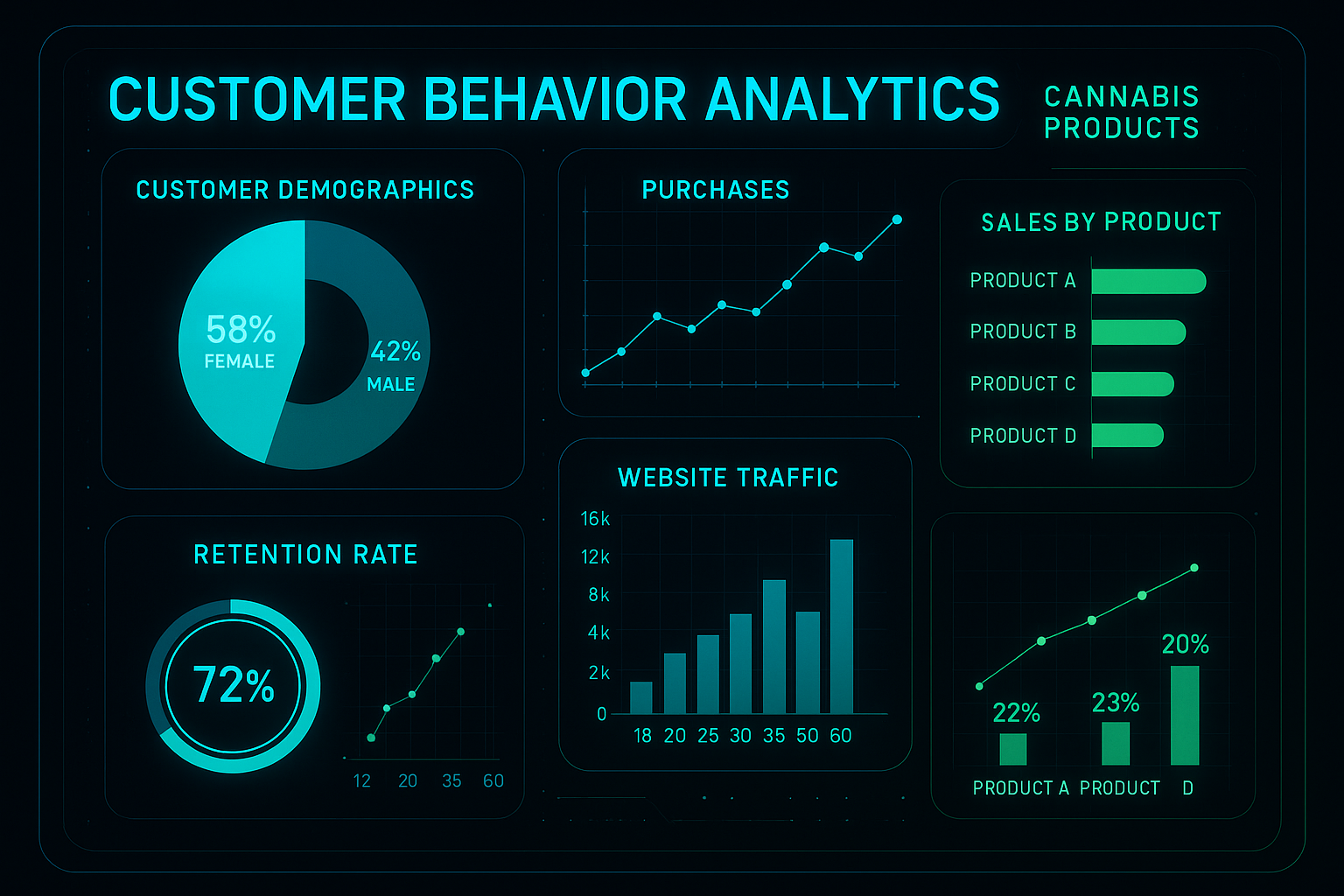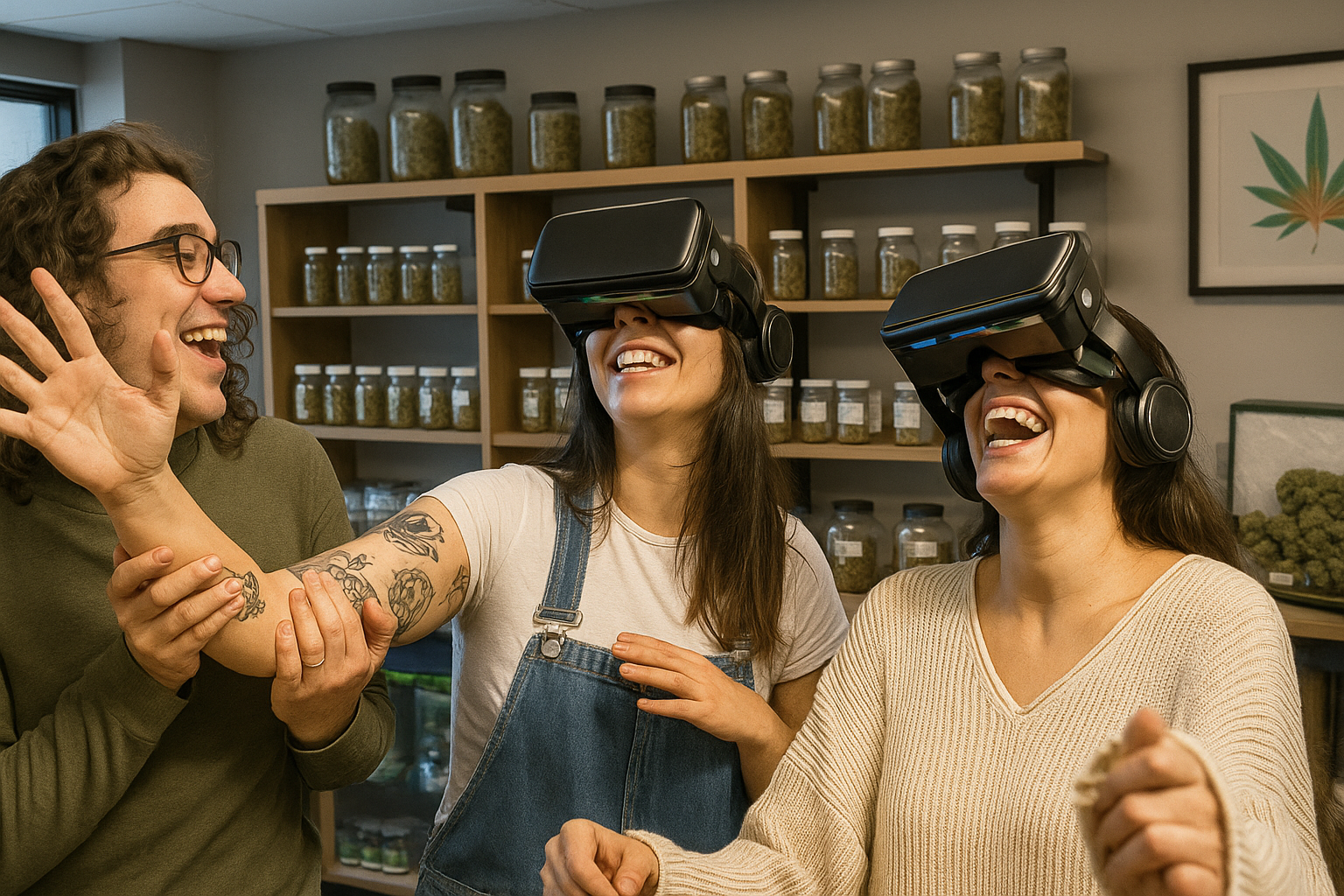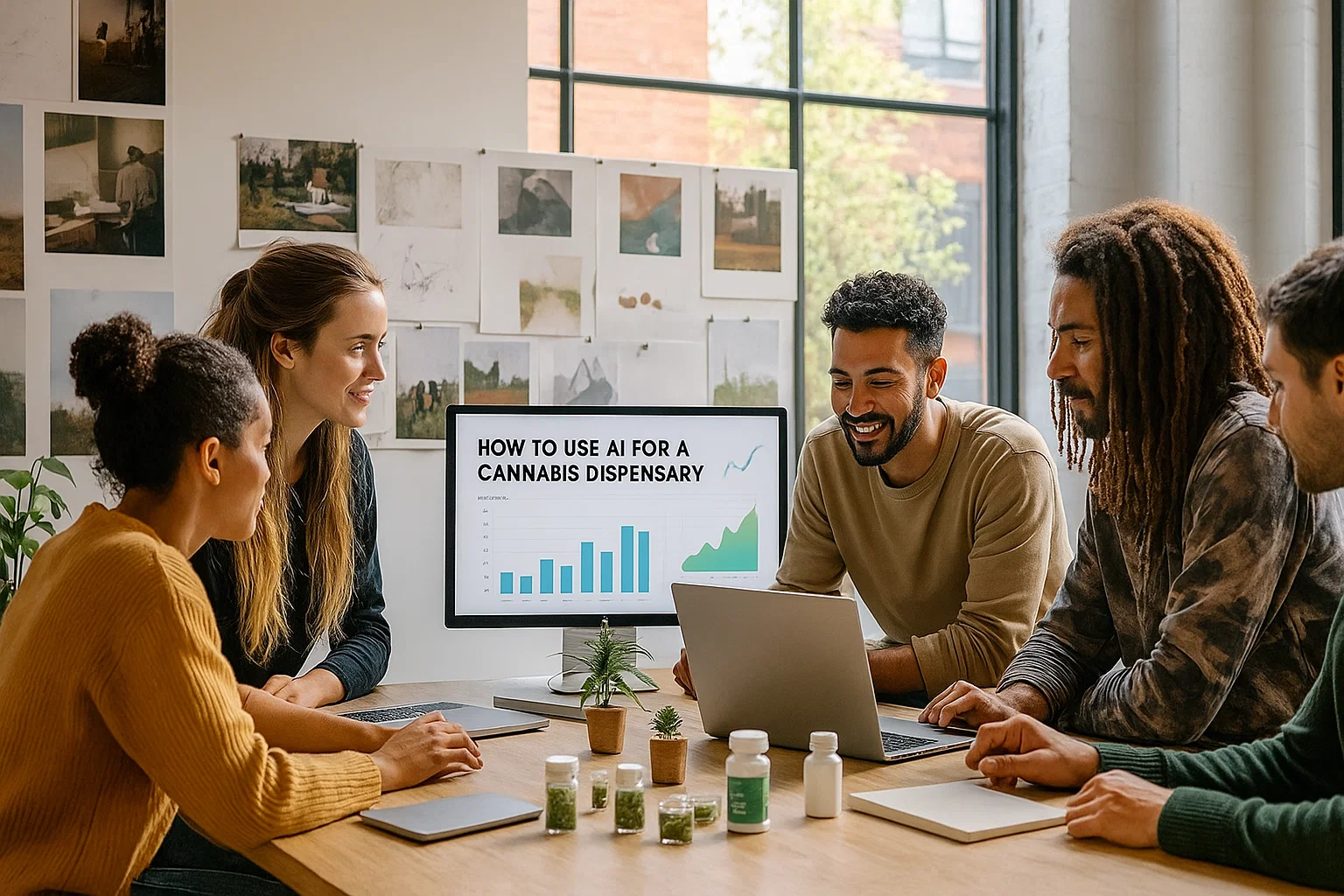
The Future of AI and Automation in Cannabis Marketing
What was once the future of artificial intelligence (AI) and automation in cannabis marketing is now here. Dispensaries and cannabis companies nationwide are already leveraging artificial intelligence for aspects like regulatory compliance, supply chain optimization, and understanding consumer behavior.
While other industries debate the ethics of integrating AI, cannabis businesses are leading the charge with machine learning algorithms to predict demand fluctuations, analyze historical sales data, and even personalize customer experiences with surgeon-like precision.
With the cannabis sector's regulatory uncertainty, leveraging AI might unlock the rapid growth and security that cannabis retailers are looking for.
Cannabis Marketing Agency AI Integration

Stefan Stefacik
Agency Workflow Automation
With AI automation working in the background, cannabis marketing agencies are doubling down on creativity while artificial intelligence does the grunt work:
- Campaign management systems use predictive analytics to optimize ad spend across platforms
- This automatically adjusts budgets based on performance data and market trends
Client reporting is also greatly improved. Say goodbye to manual spreadsheets and hello to real-time dashboards that analyze data from multiple sources simultaneously.
Machine learning processes consumer behavior patterns, tracking aspects like:
- Click-through rates
- Conversion metrics
- Actionable insights
But the real MVP? Creative production scaling. AI tools can:
- Generate multiple ad variants
- Test different messaging approaches
- Identify winning creative elements faster than A/B testing
That means agencies in the cannabis industry are producing even more personalized content than ever before while also reducing labor costs and turnaround times.
Programmatic Advertising
AI automation in programmatic advertising is making it easier for cannabis companies to reach their target audience, even in the weeds of regulatory constraints.
Machine learning algorithms are analyzing consumer behavior to identify key factors like the best timing, placement, and messaging for cannabis ads across approved platforms. And this isn't just about increasing sales—it's about a deep level of personalization to your ads that ensures compliance with platform-specific advertising restrictions.
Content Creation and Personalization
Here's where AI can thrive (if you're careful). It's changing the game for content creation in cannabis marketing in several ways, especially for the automated generation of:
- Blog posts
- Product descriptions
- Social media content
But we don't suggest solely relying on it. Consumers are smart, and they prefer authenticity. When it comes to fully AI-generated blog posts, especially visual graphics, people can usually tell. It's always wise to maintain a good balance between AI and human content, leaning more towards the human side of things.
And what about email marketing? Personalized campaigns can even adapt content based on individual customer preferences, purchase history, and engagement patterns. AI analyzes which cannabis products each customer is most likely to purchase and when they're most likely to make buying decisions.
Cannabis Dispensary Marketing Automation

Herb
Customer Experience
One of the easiest ways cannabis dispensary owners can improve the customer experience is by using AI-powered chatbots.
These mini virtual assistants handle customer inquiries 24/7 with instant answers about anything from product availability and effects to recommendations. They maximize customer engagement and point them in the right direction without you having to lift a finger.
Operations and Inventory Marketing
Automated inventory management is a huge step forward in daily operations. Automated systems can create targeted promotions for slow-moving products and highlight new arrivals, which also reduces waste and maximizes revenue from existing stock.
Dynamic pricing is another big one. It adjusts product prices based on demand, competition, and inventory levels. AI models can identify the best possible pricing that maximizes profitability while keeping customer satisfaction and competitive positioning at the forefront.
Future Predictions: AI Cannabis Marketing in 2025-2030

Herb
Augmented Reality and Virtual Experiences
Virtual dispensary tours: This could become a standard in marketing tools. Virtual tours can allow customers to see store layouts, product displays, and get to know the overall store vibe, all from the comfort of their home.
AR product visualization: This lets customers see cannabis products in detail before visiting dispensaries.
Advanced Personalization Technologies
Hyper-personalized product recommendations: These can have near-perfect accuracy through continuous learning from customer feedback and purchasing behavior, knowing everything from individual tolerance levels to preferred consumption methods.
AI-generated custom content: Expect to see a huge rise in AI content, whether that's educational blog posts or visual social media content. Just remember, authenticity is key, and people can tell when you're only using artificial intelligence.
Environmental sensors and real-time monitoring in cannabis cultivation: This can give consumers detailed information about growing conditions, harvest time, and quality control measures for the best possible outcome.
Regulatory Technology Evolution
Automated compliance monitoring: These tools adapt to changing regulations across jurisdictions in real-time, keeping your marketing materials and campaigns compliant.
Cross-jurisdiction marketing automation: A true game-changer—this can manage campaigns across multiple states with different regulatory requirements, automatically adjusting content and targeting to comply with local laws while maintaining brand consistency.
Final Thoughts: Preparing Your Cannabis Business for AI

Herb
Data infrastructure development should be your first priority. AI tools need clean, organized data to function effectively, so investing in proper data collection and management systems is step number one.
Staff training and education come next, ensuring your team can leverage AI and have human oversight for quality control and genuine customer satisfaction.
Our take? The future of AI in cannabis belongs to businesses that combine AI efficiency with human creativity and judgment. Companies that aren't afraid to stay ahead of the curve will benefit most.
Start small, learn quickly, and scale what works. The competitive advantages are too significant to ignore.








